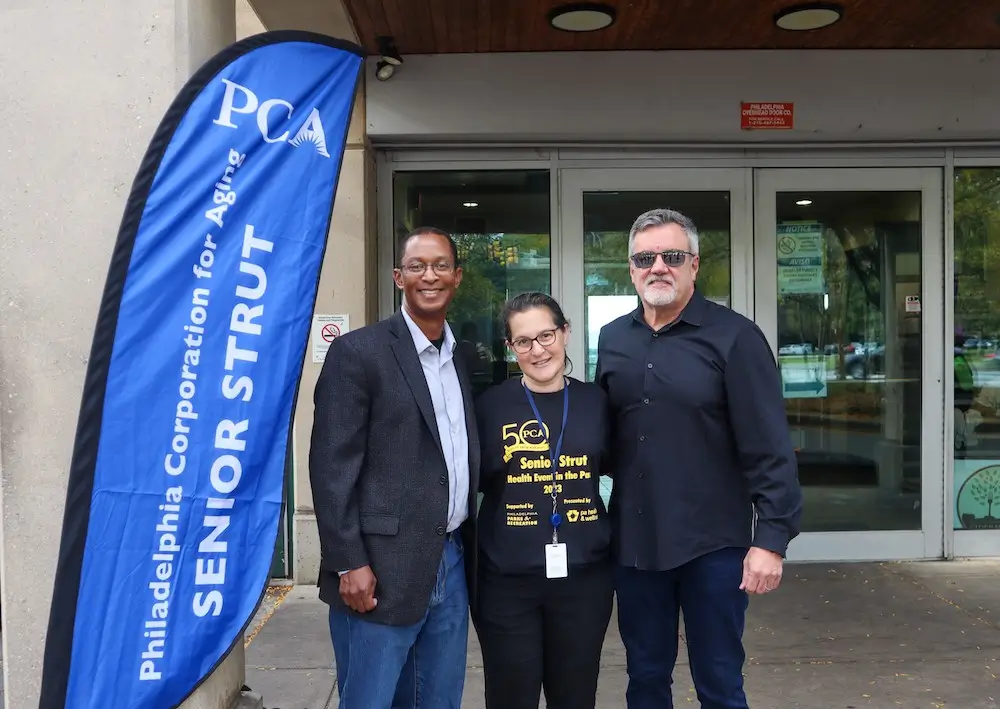
Building the Philadelphia Corporation for Aging’s plan for creating a better future with small steps that start now

When it comes to strategy, many organizations find it challenging to balance a bold vision for change with the practicality of near-term execution. This can be especially difficult when nonprofit teams must balance their robust list of routine tasks along with finding adequate time for rigorous strategic thinking, planning, and implementation. Nevertheless, this level of planning is vital for health or social sector organizations that are serious about creating a better future (for themselves and the people they serve.) These entities understand true success requires the right balance between big ideas for tomorrow and small steps teams can take today.
When the Philadelphia Corporation Aging set out to formulate a new strategic plan — with a specific emphasis on long-term thinking and near-term doing — they turned to Collaborative Consulting for help.
PCA is the state-designated Area Agency on Aging for Philadelphia County, responsible for coordinating and administering federal, state, and local funds for older Philadelphians and adults with disabilities to assist them in achieving their maximum level of health, independence, and productivity. It provides a wide range of services, including advocacy, care management for long-term care programs, protective services, home-delivered meals, and the administration of senior centers. Each year PCA touches the lives of more than 140,000 older adults and people with disabilities.
- Conducted an assessment of PCA’s current state, strategy, and staff engagement to glean insights that would inform the organization’s strategic decision-making.
- Focused PCA’s leadership team on big-picture futures thinking, without sacrificing practical, near-term progress toward goals.
- Developed a clear and actionable strategic plan that established people, performance, revenue, and policy priorities for the near, mid, and long-t.erm
- Helped PCA to pursue a structure an implementation plan with specific accountabilities, timelines, and KPIs.
PCA engaged Collaborative Consulting to help the organization formulate a comprehensive strategy with clearly defined near-term, mid-term, and long-term priorities.
The project focused on:
- Benchmarking the current state of the organization, its strategy, and its staff engagement
- Developing a clear, coordinated, and actionable strategic plan and framework for implementation
- Helping PCA’s leadership team step out of their day-to-day operational and administrative work into futures thinking for the organization
PCA engaged Collaborative Consulting to work alongside their leadership team to formulate a strategy to achieve near term priorities and build toward long-term opportunities. Our work together leveraged our subject matter knowledge, structured strategic planning processes, and expert facilitation methods.
Our process began with a battery of staff and stakeholder interviews to understand the starting state of the organization, its goals, and the strategy in place at the time. We also analyzed data from a recent employee engagement survey, resulting in key insights about the people responsible for delivering the organization’s programs and services.
These insights — along with research into market trends relevant to PCA’s area and offerings — informed our strategic planning process, during which we led PCA’s leadership team through a series of facilitated sessions to set strategy and plan implementation. Through our work, we helped the team consider the possibility of long-term thinking to identify high-impact opportunities for the organization’s future, while being rigorous about establishing practical actions that could be implemented right away.
This resulted in a strategic framework establishing priority initiatives across people strategy, organizational performance, revenue strategy, and internal policies — all with 2, 5, and 10-year time horizons.
Our work resulted in a balanced short- and long-range strategic approach to help PCA focus on what needs to happen right now (within two years) while working toward medium-term innovation and change, never losing sight of a long-range vision for the future.
With this plan in place, PCA has assigned a lead to implement each strategic objective, with a manager, director, or the CEO overseeing progress. Each objective is time-bound and will be evaluated against key performance indicators.

